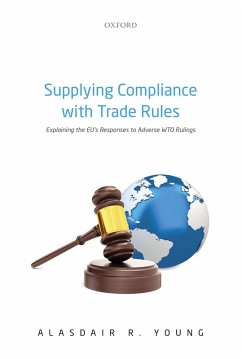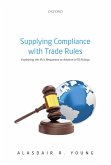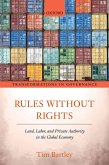Trade agreements have become politicized in part because of public concerns that trade rules constrain regulatory decisions. How much international obligations constrain state behaviour, however, is contested in the International Relations literature. This book seeks to explain whether, why, and how jurisdictions comply with inconvenient international obligations. It does so through detailed process tracing of European Union (EU) policies found incompatible with World Trade Organization (WTO) rules: its ban on hormone-treated beef, its banana trade regime, its moratorium on the approval of genetically modified crops, its sugar export subsidies, and its anti-dumping duties on bed linen from India. It uses the adverse rulings as the 'treatment' in a 'natural experiment', contrasting the policy-relevant politics before and after each ruling. The case studies are supplemented by a qualitative comparative analysis of all EU policies found to contravene WTO rules that had to be changed by the end of 2019. The book contributes to debates on the impact of international institutions, on the effectiveness of the WTO, and on the nature of the EU as an international actor. It argues that the preferences of policy makers (the 'supply' of policy change) matter more than demands from societal actors in determining whether compliance occurs. It also argues that while policy change in response to adverse WTO rulings is the norm (good news for trade), WTO members do resist obligations that would compromise cherished policy objectives (good news for legitimacy). This volume contends that the EU's compliance performance is like that of most WTO members; it is not a unique international actor.
Dieser Download kann aus rechtlichen Gründen nur mit Rechnungsadresse in A, B, BG, CY, CZ, D, DK, EW, E, FIN, F, GR, HR, H, IRL, I, LT, L, LR, M, NL, PL, P, R, S, SLO, SK ausgeliefert werden.









